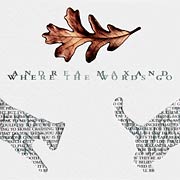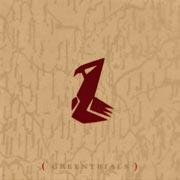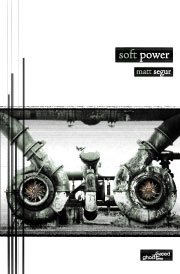
snow on the mountain
| ||||||||||||||||
buy new releases:
|
||||||||||||||||
|
| ||||||||||||||||
watch intro movies: andrea maxand / half a joke  andrea maxand / bedroom window greentrials / some battleground greentrials / sweet intentions | ||||||||||||||||
buy old releases:
|
||||||||||||||||
|
1. sony robot dog
A MOMENT DELETED from Stanley’s life. Just a brief one. He might have used it to read a sign, admire a color, or exclaim in anger. No great loss. He was walking to work, crossing a street: looked carelessly right instead of left, stepped forward. He saw his own foot below him. His foot marked the start of the deleted scene of Stanley Rollick. Clap. Then just as suddenly the glitch corrected and he was on all fours, palms bloody by the sharp sidewalk concrete. It took no time at all to deduce, from the squeal of the car tires and from the pain, what had happened. His suspicions confirmed as a nearby adolescent looked on admiringly and said “Wicked!” by instinct, and doubly confirmed by the ministrations, apologies, and admonishments of the big, American car’s driver. Still, the fact that he couldn’t fathom how he must have flown to end up exactly there made him worry: he had missed something important. What if he were routinely missing moments—bits and pieces of time—and only the side-effects had brought this one fugue to his attention? But he went on his way, brushing off the anxiety, like the grit in his palms, with the hypothesis that catastrophes often feel that way. He kept walking, barely registering the thing, because he was expected at work, where he went after sleep. He got there soon enough, pushed his way in the door, still shaking a little, and didn’t speak to the guy coming off the last shift: just waited for him to stand up and took the chair. He sat in the chair, now comfortably and appropriately at work, waited for the car vibrations to subside, and thought about what had happened. Stanley Rollick, 21, fantasizer, theorizer, and nervous walker, right wall follower, nonparticipant, progenitor of countless uncomfortable pauses, eavesdropper and eyeroller, amateur, klutz, and above all a neglector of vital immediacies, found nothing novel in the event itself, only in his fuzzy reaction. Being pushed around was his M.O. He worked at a storage company, which suited him because he could be paid to sit and read. He looked in on half a million cubic feet of people’s things partitioned into numbered crates that stood, resoundingly silent, under the buzzing fluorescent warehouse lights. Every so often a truck came to deliver a new, anonymous crate or take an old one away. Aside from that it was only Stanley and the oppressive mass of all the neglected things. The mass of a rectangular solid—for example one of the regimented storage crates that this company provided—is its length times its width times its height times its density, and all those multiplications add and add and add so that the mass is oppressive indeed. He tried not to think about it, instead thinking about being paid to sit and read. By now his routine consisted almost entirely of being paid to sit, read, or doze at work; not being paid to do those same things at home; and, in between, taking exploratory walks in expectation of—or intending to put himself in the way of—unspecified events that subsequently failed to transpire. He felt he was missing those more than anything: events. And if accidents with cars weren’t what you woke up hoping for, they were something at least. Maybe that car knocked his brain around a little. When the morning hours drifted by, slowly bending the light in the grim little lobby toward darkness, Stanley eventually relaxed into the chair and began to doze, every so often pulled back to the orange desk and the greenish light by some sound or other. He had strange dreams—unpleasant dreams—that mostly slipped from his consciousness with the same fragility as his flight above the car, but one episode refused so to dissipate: The dream was about work. Many of his dreams while at work were about work, which raised troubling questions about the efficacy of sleep as a means of escape in that setting. Stanley—or somebody, the eye—was exploring the warehouse, up and down the rows upon rows of crates. He was trying to localize something that irritated him: an insistent, powerful, low-frequency hum. He traversed the aisles again and again, searching for a pattern as the strength of the sound rose and fell in response to his movements. He couldn’t find it; it was impossibly difficult; he wanted to cry in frustration at his incompetence to perform the simple task. He had no choice; he had to continue until he found it, that sound. The sound was dangerous, and it was hiding. He walked and walked, and always it slipped around behind him. Finally, after a dream-eternity, he stumbled as if by accident upon the crate that seemed to broadcast the hum. Though the crates were of standard proportions, this one was bigger: weirdly foreshortened, its corners sweeping outward with angular, cubist menace. It contained Something. Even if he’d been capable of unlocking the crate he was afraid to, but by inaction he felt lax in his duty as an employee. He stood, paralyzed by this dilemma, flooding with panic. Just before he shook awake he caught sight of the lot number: 1588.
|
||


